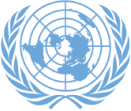Statement by Mrs. Ronalda Edwards-Horatio, Foreign Service Officer, Multilateral and Global Affairs Department, Ministry of Foreign Affairs of the Cooperative Republic of Guyana at the Thematic Discussion of the Disarmament and International Security Committee (First Committee) on Cluster I: Nuclear Weapons
Thank you, Mr. Chairman.
Mr. Chairman,
Guyana aligns itself with the statements delivered by the distinguished Permanent Representative of Jamaica on behalf of the Caribbean Community (CARICOM) and the Deputy Permanent Representative of Indonesia on behalf of the Non-Aligned Movement. My delegation adds the following remarks in its national capacity.
Mr. Chairman,
Guyana is committed to a world free of nuclear weapons. To this end, Guyana has always taken a progressive approach to questions of nuclear non-proliferation and disarmament and is state party to the major legal instruments comprising the regime governing nuclear disarmament and non-proliferation.
Guyana’s commitment to the objective of a nuclear-weapon free world is rooted in our deep concern about the catastrophic humanitarian consequences of nuclear weapons as evidenced by past use and testing and our firm conviction that the only way to guarantee that nuclear weapons are never used again under any circumstances is to totally eliminate them. Guyana was therefore pleased with the adoption of the Treaty on the Prohibition of Nuclear Weapons (TPNW) in July 2017 which prohibits, inter alia, the development, testing, manufacturing, production, acquisition, possession, stockpiling, use or threat of use of nuclear weapons under any circumstances. Guyana is of the firm view that the TPNW is a historic and significant contribution to the nuclear disarmament and nonproliferation regime since by strictly prohibiting nuclear weapons, it closes the legal gap that previously existed.
Mr. Chairman, Guyana views the TPNW as complementary to previously in force nuclear disarmament and non-proliferation instruments including the Nuclear Non-Proliferation Treaty (NPT). We believe that both instruments strengthen the global norm against nuclear weapons and intend to fully comply with our obligations under these instruments. Guyana underscores that numbers are critical to the strengthening of norms and urges all Member States that have not yet signed and ratified the TPNW to do so as a matter of urgency to facilitate its early entry into force. For its part, Guyana was the first country to both sign and ratify the TPNW and we were pleased with the tabling of the TPNW draft resolution in the First Committee this year which we have since co-sponsored.
Mr. Chairman, Guyana joins other Member States in advocating for the entry into force of the Comprehensive Nuclear Test Ban Treaty (CTBT). This is an urgent question that requires responsible leadership on the part of those States whose ratifications are required for the Treaty to enter into force and our appeal is for them to rise to the occasion.
Guyana was pleased to see the Secretary General and the High Representative for Disarmament commit to increase their efforts to facilitate dialogue between Member States in order to help them return to a common vision and path leading to the total elimination of nuclear weapons. We are of the view that the nuclear disarmament architecture provides an ample framework to bring us to a common understanding of the most critical actions we need to take at this juncture. In this regard, Guyana shares the view of many other stakeholders that reductions in overall stockpiles of all types of nuclear weapon; reduction of the role and significance of nuclear weapons in military concepts, doctrines and policies; reduction in the operational readiness of nuclear weapon systems; measures to build confidence and mutual trust; and increased transparency in nuclear-weapon programmes are among the many critical elements that need to be addressed at this juncture and could inform this common vision and path leading to the total elimination of nuclear weapons.
Guyana is encouraged by the positive developments on the Korean Peninsula and we hope that this trend will be sustained leading to the total denuclearization of the area. We encourage all parties to continue to act in good faith.
Mr. Chairman,
As a small developing country, Guyana remains concerned about the diversion of economic resources to the maintenance of nuclear and modernization of nuclear weapon stockpiles and their delivery systems. We view this as an affront to development and believe that these resources expended on unnecessary implements of war would be better invested in people’s wellbeing.
Mr. Chairman, In conclusion, Guyana reiterates the need for further practical and concrete disarmament measures that will lead to the total elimination of nuclear weapons and recommits to being an active and conscientious partner in the global agenda to realize a nuclear weapon-free world.
I thank you.


